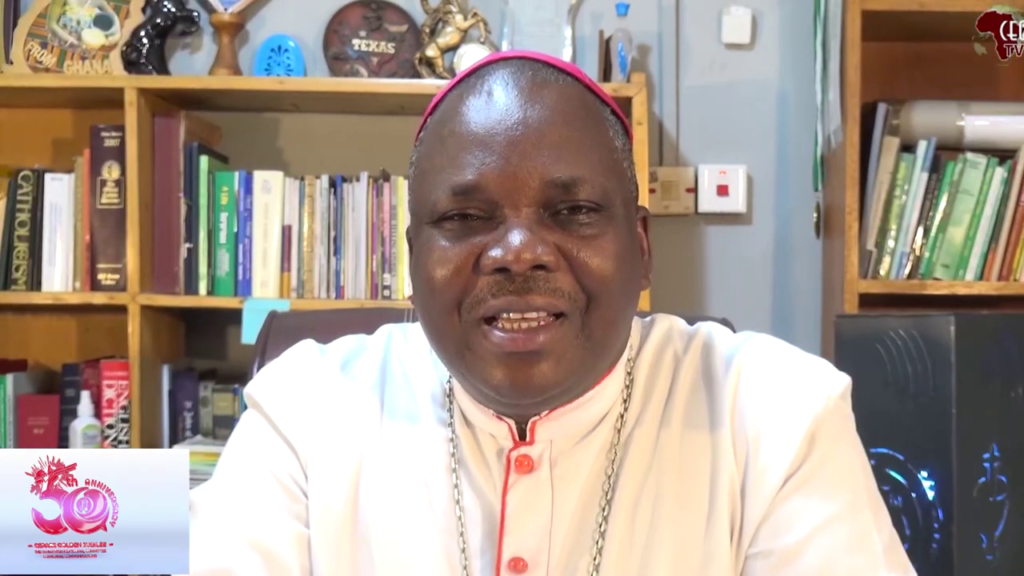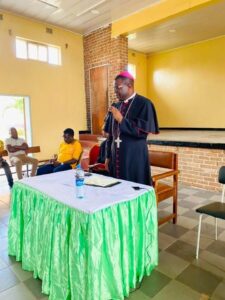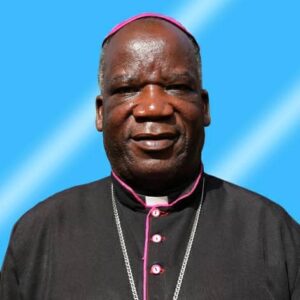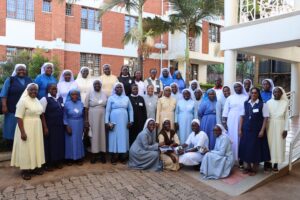CEPACS NIGERIA: CEPACS President Urges Closer Ties with Media for a Transformative Future

Bishop Emmanuel Adetoyese Badejo President of CECAPS
Sr. Henriette Anne, FSSA
As the Pan-African Episcopal Committee for Social Communications (CEPACS) celebrates its 50 years since its conception, Rt. Rev. Emmanuel Adetoyese Badejo, the President of CEPACS pointed out the mandate of the Committee and stressed to the delegates who were attending the function in Lagos, Nigeria, to try and establish a good relationship with media professionals, practitioners, and organizations within and outside Africa, both Christian and secular ones in order to fulfill its mandate.
In his speech, the president noted that the mandate of CEPACS was inspired by the principles outlined in “Communio et Progressio”(the pastoral instruction on the means of social communication) that was released at the direction of the Second Vatican Council, meant to deepen understanding of the teaching and spirit of the Council and guide Christians in their attitudes to the media after the publication of Intermerifica; a document addressing the concerns and problems of social communication, to engage in all matters concerning the Catholic Church activities in the realm of media in Africa and Madagascar.
He added “CEPACS was to work through the regional offices of communication, to animate, encourage, and coordinate Church media activities at all levels – national, regional, and continental. CEPACS would also promote the Christian dimension in the use of all media in society and in evangelization, which includes the promotion of the whole person”.
Shedding light on the origin of CEPACS, Bishop Badejo said “CEPACS is the French acronym for: Comité Episcopal Pan-African Pour les Communications Sociales or in English – Pan-African Episcopal Committee for Social Communications. It was established as an outcome of the Pan-African Episcopal Meeting on Social Communication that took place in Ibadan, Nigeria from November 28 – December 2, 1973”.
Sharing on the role of CEPACS, President Badejo of Nigeria’s Oyo Diocese said that the key functions of CEPACS include recognizing the crucial role of training in media.
He further disclosed that CEPACS inherited a scholarship program from Stem van Afrika (SvA), a Dutch initiative for broadcasting in Africa which at times totals up to an impressive US $80,000.00, a program that became a cornerstone of CEPACS’s efforts. The organization evolved into a screening committee for scholarship applicants, collaborating with Church Institutions and other media-related projects to foster the growth of skilled professionals in the field.
He further said, that before CEPACS, there was a notable absence of regional organizations and coordination policies in communications across Africa. CEPACS filled this void by establishing and maintaining coordination through meetings, seminars, and annual assemblies. By 1983, CEPACS had appointed contact persons in each of the seven SECAM regions, fostering a network that laid the groundwork for collaborative efforts in the years to come.
Besides providing scholarships and establishing coordination, CEPACS proposed a Press Agency project in 1999, later taken up by SIGNIS. The organization also collaborated with CARITAS in 1998, laying the groundwork for SECAM’s own website. These ventures underscored CEPACS’s adaptability in embracing emerging technologies for the greater good of Catholic social communications, bishop Badejo said.
He continued, that CEPACS’ impact extended beyond infrastructure and technology and the committee actively assisted in implementing “The Guide for the Training of Future Priests Concerning the Instruments of Social Communications.” Seminars for seminary rectors and collaborations with AMECEA/IMBISA resulted in a three-volume textbook, “Communication for Pastoral Formation,” highlighting the organization’s commitment to integrating communication into pastoral education.
The Prelate narrated “Most recently in 2022, CEPACS, with the help of the Dicastery for Communications and on behalf of SECAM reached a Partnership agreement with the African Press Organization (APO) Group, a leading pan-African communications consultancy, and press release distribution service to provide support and training for enhanced professionalism and publicity for communication activities of the Church in Africa. APO also provides professional training for various segments of Church professionals in key communication fields interaction. It also offers expert support for Professionals of communication at all levels in the Church”.
Other roles are; creating an inventory of different resources for the use of Mass Communication and developing a pastoral plan for the use of Social Communication, and the internet/intranet among others.
The Local Ordinary of Oyo Diocese also noted that despite the achievements, CEPACS has faced several challenges; loss of focus on the founding vision, instability in leadership, inability to fulfill statutory responsibility to SECAM, difficulty connecting with French and Portuguese-speaking segments, financial constraints impacting day to day operations, dichotomy with Catholic Media Professional Organizations and loss of linkage with the Dicastery for Communication
According to bishop Bedajo, the celebration of the Golden Jubilee of CEPACS opens fresh opportunities to relaunch CEPACS.
Bishop Bedajo on highlighting the opportunities said a concrete decision on the relevance of CEPACS for the future is imperative, which involves a thorough assessment of its role in the context of the Church’s evolving mission, strengthening regional communication structures, and rekindling the interest of bishops in conferences across Africa will enhance CEPACS’s influence, strengthening social communication networks align with the broader themes of the Synod on Synodality stressing that the approach fosters a more synodal Church in Africa, responsive to the needs of its diverse communities.
He continued that other opportunities for CEPACS are to translate Church teachings into pastoral practice and align with World Communication Day messages to enrich the Church’s discourse and engagement with the faithful, providing resources for the formation and networking of digital missionaries in communication to ensure that the Church is equipped to navigate the challenges of the digital age, and building alliances with young people and leveraging digital media for community building is essential saying the call for “digital missionaries” aligns with the youthful energy and creativity needed for effective communication.
In addition, he said, CEPACS can activate alliances and partnerships with organizations like APO, ACI Africa, Radio Vatican, and others to significantly enhance the communication project of the Church in Africa, and redesign the strategies and procedures for attaining the objectives of the committee.


